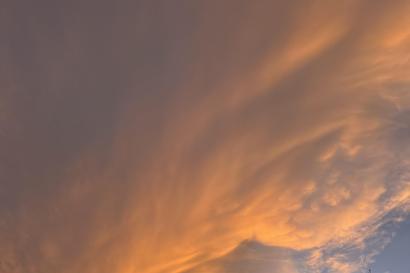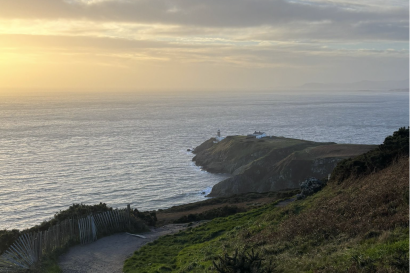In news that probably isn’t remotely shocking, given that I’m writing for IES Abroad, I came to Dublin as part of the writer’s program. I wanted to go on this program because, in part, I was so excited by the prospect of all my time in study abroad being dedicated to reading and writing, so much that the location was nearly an afterthought. Had I paid more attention, it would have come as no shock that the writing-specific program took place in Dublin, a UNESCO world city of literature and home to many writers who helped to shape the face of modern literature.
What Dublin is known for most, in terms of writing, would have to be James Joyce. Joyce, on top of shaping the face of the modernist movement, lived in Dublin, wrote extensively about Dublin—his first published book of short stories was called Dubliners. It is no surprise that the city he paid so much homage to is returning the favor. I knew that Joyce was Irish and that he was important to the city, from the Joyce tower in Sandycove to the James Joyce bridge over the river Liffey. What I did not know about was the plethora of other writers belonging to Dublin city. Edna O’Brien, Samuel Beckett, and Seamus Heaney also have connections to the city, and the literary side of Dublin spilled into nearly everything I did over the semester.
Edna O’Brien, described by some as the best writer of the generation, wrote Dublin’s “One City, One Book” of the year 2019. This is essentially a city-wide “book of the year” title, not necessarily given to titles still coming out, but to whatever is deemed most important for Dubliners to read. O’Brien’s trilogy of books, The Country Girls, currently holds the title. In part due to this, we were given the opportunity to see a staged performance of The Country Girls, based on the books, a performance so good it brought the majority of the writer’s program to tears.
Some of the other ways literature infects the lives of people living in Dublin is in all of the monuments to literature on the streets. One of the landmarks on maps of the city is the statue of Oscar Wilde, commissioned across the street from Wilde’s childhood home in the late 1990’s. This, on top of many tributes to the ever-present James Joyce around the city, are reminders of the importance writers have with the history of the city. The monuments are impressive, but not nearly as impressive as the labyrinthine bookstores on every corner. (I’m so proud of myself for not leaving the city with a suitcase full of books, as they’re so cheap and easy to come by in Dublin.)
My professor for Irish Communal Identity said that it was no accident that there were streets and bridges named after writers, that there are bookstores and coffee shops everywhere, and that Dublin is playing up its status as a City of Literature in as many ways as possible. He cites this as a way of the city trying to brand itself as “hip” and “artistic.” If it becomes a city of literature and writing, if it can become known for that above all else, he argues that it will bolster Dublin’s economy and give the city as a whole a greater sense of identity. Throughout much of the city’s fraught history, the rich have left for Britain and the city has been without elements that tie it together as a cohesive unit.
Whatever the intentions behind this branding, it has been largely successful. Speaking as a writer, I found Dublin to be a literary paradise, one that seems to have only intentions of growth.

Elizabeth Coffman-Mackey
I am a fourth year college student living with my wife and our cat. I spend most of my free time writing stories or attempting to "vegetarianize" meat dishes. I love all kinds of fantasy, but especially the likes of Neil Gaiman and Terry Pratchett, and I hope to learn enough about English in college that I can spend the rest of my life getting paid to do the writing I will be doing anyway.









